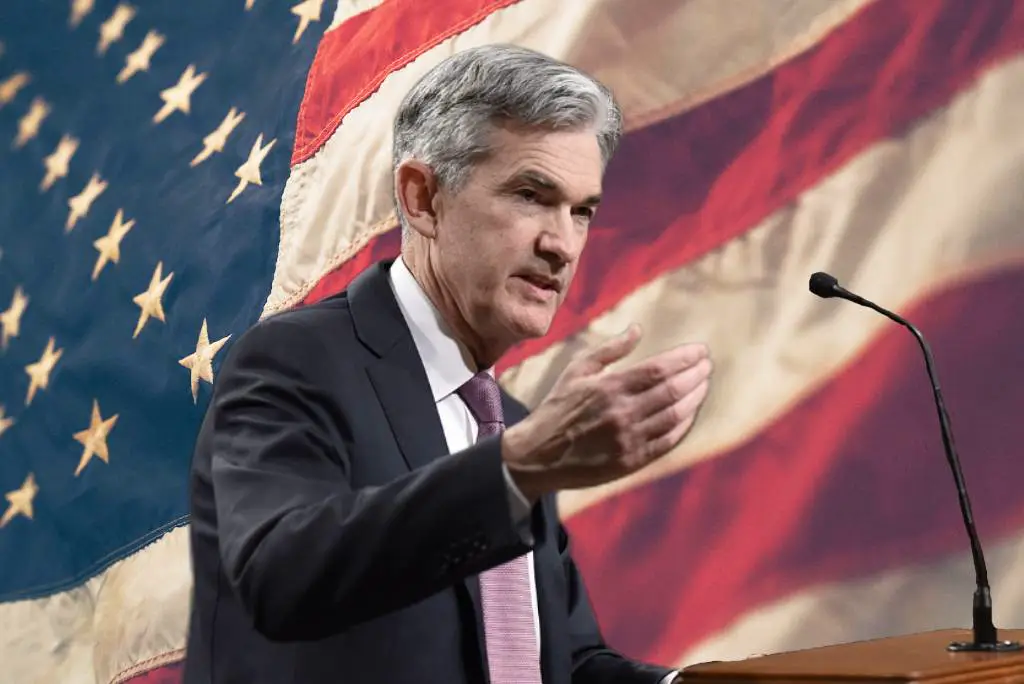In a recent interview with MarketWatch, the president of Rosenberg Research, David Rosenberg, didn’t hold back his criticism of the Federal Reserve and his bleak economic outlook.
He emphasizes the same somber investment and economic themes discussed in a late April interview and firmly believes that a recession is inevitable.
Given this perspective, Rosenberg advises investors to adopt a defensive stance and focus on rate-sensitive stock market areas, such as utilities, consumer staples, and real estate investment trusts (REITs). He suggests a “barbell” strategy in the bond market, which involves positioning a portfolio in short-term and long-term securities.
As the head of this research company, he continues to offer valuable insights into economic trends, financial markets, and policy implications.
He warned that recessions can be elusive, often catching policymakers and businesses off guard. Despite the US Federal Reserve likely ending its rate hikes, Rosenberg believed that the economy had already suffered damage that would have lasting effects.
Rosenberg’s Economic Outlook
Rosenberg’s economic outlook suggested that the economic damage could lead to a decline in business and consumer spending. He anticipated a rise in unemployment rates and anticipated that companies and consumers would adopt a more cautious approach amid the economic downturn. His predictions hinted at a challenging economic environment ahead.
Rosenberg’s Views on a Soft Landing
For those who believe that the Federal Reserve will achieve an economic “soft landing,” David Rosenberg dismisses such optimism with two straightforward words: Dream On.
According to Rosenberg, the current scenario, with the Federal Reserve implementing its most aggressive tightening measures since the Paul Volcker era, leaves no room for a smooth and gentle economic transition. He firmly asserts that the chances of a soft landing are non-existent.
Rosenberg disagrees with the idea of a ‘soft landing’ for the US economy and warns against dangerous extrapolation of the current situation. He believes the soft landing has already occurred, and the Fed’s rate increases amid an inverted yield curve signal potential trouble ahead.
He criticizes the stock market’s role in reflecting economic reality, calling it a get-rich-quick scheme driven by sentiment and technicals. Rosenberg dismisses the notion of a sustained soft landing and highlights the economy’s heavy reliance on credit and low interest rates.
He anticipates those claiming no recession will be proven wrong, expecting challenges due to the Fed’s tightening policy.
Not Surprised By Strong Labor Market
Rosenberg isn’t surprised by the strong US labor market, noting that the unemployment rate is a slow indicator. He explains that companies hoard labor but cut hours as business activity slows.
The workweek is at the same level as during the lockdown in April 2020. Rosenberg urges focus on leading indicators, like hours worked, which suggest employment will weaken in the next six to twelve months.
He believes people often rely on nonfarm payrolls without considering the broader labor market picture.
FED will hike rates in July
Regarding the Fed’s signals, Rosenberg notes that they paused at the last meeting but still plan to hike rates in July. He speculates that Powell might use the upcoming Jackson Hole symposium in August to suggest the rate cycle has peaked or is peaking.
He doubts the data will support two more rate hikes. The yield curve, usually positively sloped, could mean a revert, leading to a pivot from the Fed. Even without a recession forecast, the Fed’s estimate of the neutral funds rate is 2.5%, while current rates are nearly 300 basis points above that.
To reach neutrality, the Fed may need to cut rates significantly, leading to a Treasury rally, especially at the front end of the curve.
MarketWatch asked Rosenberg about the apparent disparity between his predictions of a sharp US economic downturn and the stock market’s continuous rise.
Rosenberg rejects the idea of fitting his narrative to the stock market’s performance, citing past instances where the market’s rise didn’t prevent recessions.
He recalls his accurate recession prediction in 2007 despite the stock market hitting all-time highs. He dismisses the current stock market frenzy and attributes it to animal spirits, emphasizing that it doesn’t reflect the broader economic reality.
According to Rosenberg, signs like the 10-year Treasury yield and the US dollar’s behavior suggest a less optimistic economic outlook, making the stock market an outlier.
Rosenberg questions the likelihood of a wave of inflationary growth, pointing out that the 10-year Treasury yield would be higher, around 5%, if it were happening.
Additionally, there would be a boom in commodity prices. He further questions the idea of a domestic demand-induced economic boom, as the US dollar is moving into a bear market, which seems inconsistent with such a scenario.
About Janet Yallen and Jamie Dimon
Janet Yellen and Jamie Dimon don’t think there will be a recession, but David Rosenberg disagrees. He thinks Yellen is a politician with a bias, and Dimon, though not a politician, talks like one. Instead, Rosenberg looks at the data showing rising delinquency rates and slowing bank lending growth.
Dimon says things are great, but bank lending growth is going negative, which hasn’t happened since the Great Financial Crisis. Bank CEOs may not be politicians, but they act like them.
Banks are holding more cash, signaling they are worried. In short, Rosenberg doesn’t trust what politicians or bank CEOs say. He believes we might face a tough economic situation.
The banks are quickly increasing their cash reserves, indicating they are more worried than they appear to be.
